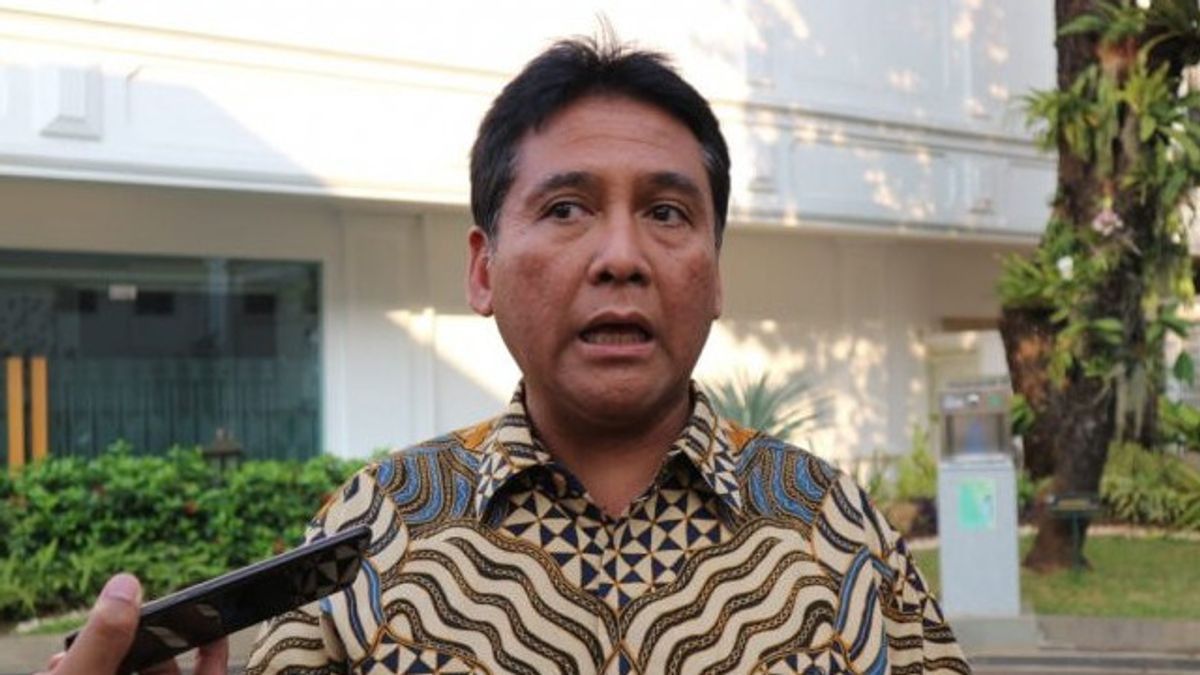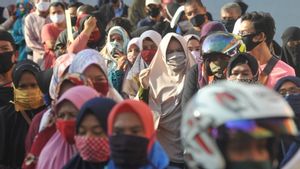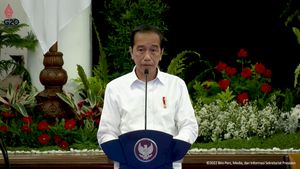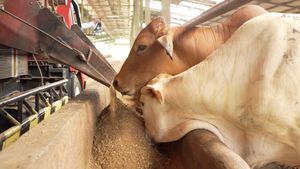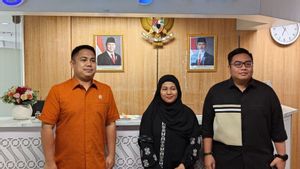JAKARTA - Chairman of the Indonesian Employers' Association (Apindo) Hariyadi Sukamdani estimates that Indonesia's inflation this year will be more than the government's prediction, which is above 4 percent. This is because there has been an increase in prices triggered by global pressures, one of which is the Russia-Ukraine war.
"The government assumes that inflation is 3-4 percent if I'm not mistaken, but we estimate it will most likely be above 4 percent if you see a situation like this," he said during a virtual discussion, Thursday, April 7.
Furthermore, Hariyadi said the increase in the price of a number of food commodities soared and reached a record high in the midst of the Russia-Ukraine conflict. In fact, the transmission in the food sector has been felt in Indonesia, which is reflected in the soaring price of cooking oil.
"The price of palm oil (CPO) soared as demand continued and coincided with the reduced availability of exports from Indonesia as a major producer of CPO," he explained.
Not only cooking oil, said Hariyadi, soybean prices also continue to increase. This is in line with the deteriorating prospects for soybean production in the United States.
Then, cereal prices also increased due to the increase in wheat prices triggered by the conflict between Ukraine and Russia. This is because Ukraine is a major wheat producing country in the world.
"Don't forget that fertilizers from Russia are also dominant in terms of potassium, ammonia and so on. They also control almost 40 percent of world exports for fertilizers. Sudan's fertilizer prices have soared, this is also a problem for food," he said.
Hariyadi said meat prices have also reached record highs due to strengthened import demand amid tight supply of ready-to-be slaughtered cattle in Brazil and Australia's reproductive policies.
"The increase in the price of a number of food and energy commodities has contributed to inflation," he said.
VOIR éGALEMENT:
Therefore, Hariyadi conveyed that there are several strategies that the government and all parties must take to reduce the potential impact of rising inflation due to the conflict crisis between Russia and Ukraine.
First, the provision of social assistance stimulus with market operations, the highest retail price policy (HET) and reference prices for food ingredients is carried out evenly, continuously and on target.
Second, the government must ensure the availability of supplies through logistics fulfillment in areas of high consumption concentration. In the oil business, the government's rice reserves remain sufficient and adequate.
"Actually, we are quite lucky in terms of rice reserves, we are quite good. If we look at 2020 when the pandemic was the worst, our rice imports were actually for the upper-middle-class consumptive. So the middle and lower classes are sufficient. This is what we think is the availability of supplies, especially This rice is really taken care of," he said.
Third, the government must also ensure smooth distribution. Supervision is also carried out with the National Police, cooperation between local governments and logistics system engineering involving State-owned Enterprises (BUMN).
Therefore, said Hariyadi, Apindo requested that the solidarity of cooperation between ministries/agencies take place effectively, especially the speed factor.
Finally, the government must carry out effective communication. Apindo emphasized the importance of coordination from the government with the regional and central inflation control teams (TPID and TPIP), as well as monitoring stock.
"And ensure that panic buying does not occur. The business world also asks if there is panic buying so that wise communication from the government appears to reduce this counterproductive phenomenon," he said.
The English, Chinese, Japanese, Arabic, and French versions are automatically generated by the AI. So there may still be inaccuracies in translating, please always see Indonesian as our main language. (system supported by DigitalSiber.id)
